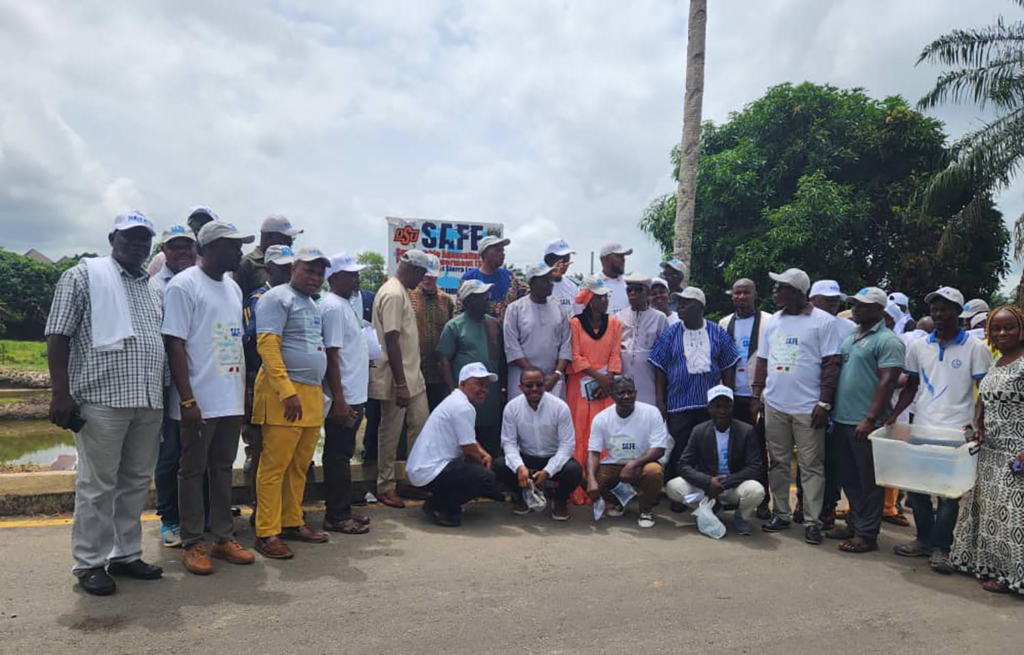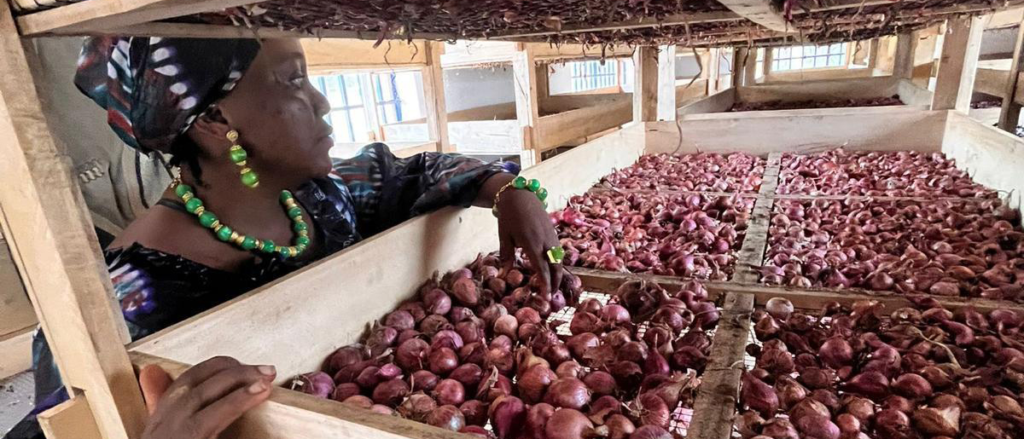In a groundbreaking partnership, Njala University in Sierra Leone and Oklahoma State University (OSU) in the United States have joined forces to launch an aquaculture initiative aimed at addressing food security challenges in Sierra Leone. This collaborative effort, rooted in sustainable agricultural innovation, seeks to empower local communities, enhance nutrition, and create economic opportunities through fish farming. By combining academic expertise, local knowledge, and cutting-edge aquaculture practices, the initiative promises to transform Sierra Leone’s food systems while fostering long-term resilience.

A Shared Vision for Food Security
Sierra Leone, a West African nation with a population of over seven million, faces significant food security challenges. Approximately 60% of its people live on less than $2 per day, and 31% of children suffer from malnutrition, according to World Bank data. The country’s reliance on fish as a primary protein source—coupled with declining wild fish stocks due to overfishing and climate change—has made sustainable aquaculture a critical solution. Njala University, Sierra Leone’s leading institution for agricultural research, and OSU, a pioneer in agricultural extension and innovation, are stepping up to meet this challenge.
The initiative, which builds on years of collaboration between the two universities, focuses on developing sustainable aquaculture systems to increase fish production, improve diets, and create income-generating opportunities. By training local farmers, providing access to modern fish farming technologies, and promoting environmentally friendly practices, the project aims to reduce hunger and poverty in Sierra Leone’s most vulnerable communities.
The Roots of the Partnership
The connection between Njala University and OSU dates back to 2007, when OSU began sending students and faculty to Sierra Leone to work on food and water security projects. These efforts included drilling wells, setting up water filtration systems, and establishing cooperative extension centers to teach local residents about fruit and vegetable production. Over time, the partnership has grown, with a focus on empowering Sierra Leonean communities to produce their own food sustainably.
Njala University’s Department of Aquaculture and Fisheries Management, established in 2007, has been at the forefront of these efforts. The department is committed to training skilled aquaculture scientists and addressing food shortages through research and community engagement. With advanced facilities like a modern Recirculating Aquaculture System (RAS), a fish feed mill, and an integrated fish farm village, Njala is well-positioned to lead this initiative. OSU’s expertise in agricultural economics and extension services complements Njala’s efforts, creating a powerful synergy to drive impact.
How the Initiative Works
The aquaculture initiative focuses on three key areas: training, infrastructure development, and community empowerment. By leveraging Njala’s research capabilities and OSU’s practical experience, the project aims to create a sustainable model for fish farming that can be scaled across Sierra Leone.

- Training and Education: The initiative prioritizes building local capacity by training farmers, students, and extension workers in modern aquaculture techniques. Njala University offers undergraduate and postgraduate programs in aquaculture and fisheries management, equipping students with the skills to tackle food security challenges. OSU contributes by providing expertise in cooperative extension models, which help farmers adopt best practices for fish farming. For example, farmers are taught how to manage fish ponds, select genetically viable species, and optimize feed to increase yields.
- Infrastructure Development: The project includes investments in aquaculture infrastructure, such as fish ponds, hatcheries, and feed production facilities. Njala’s integrated fish farm village, supported by the Multi Donor Trust Fund, combines fish, vegetable, poultry, and piggery production to create a holistic agricultural system. OSU’s involvement ensures that these systems are efficient and replicable, drawing on lessons from their previous work in Sierra Leone, such as setting up water filtration systems.
- Community Empowerment: The initiative emphasizes grassroots empowerment, particularly for women and youth. In Sierra Leone, women play a significant role in agriculture, including pond maintenance and post-harvest activities, but often lack access to resources and training. The project, supported by partners like WorldFish and USAID’s Feed the Future campaign, addresses these gaps by providing technical assistance and microfinance opportunities. This enables women and youth to start fish farming businesses, improving household nutrition and income.
Addressing Sierra Leone’s Food Security Challenges
Sierra Leone’s food security crisis has deep roots. The civil war from 1991 to 2002 devastated the country’s economy and infrastructure, leaving many communities reliant on dwindling wild fish stocks. Climate change and overfishing have further strained these resources, making aquaculture a vital alternative. The Njala-OSU initiative builds on previous efforts, such as the revitalization of the Makali hatchery in Tonkolili, Sierra Leone’s most food-insecure district. This hatchery, once destroyed during the civil war, now supplies fry and fingerlings to local farmers, enabling them to establish sustainable fish ponds.
By promoting species like tilapia and catfish, which are well-suited to Sierra Leone’s environment, the initiative ensures that farmers can produce high-quality protein sources. Fish farming also offers environmental benefits, such as reducing pressure on wild fish stocks and utilizing nutrient-rich wastewater to irrigate crops. These integrated systems align with Sierra Leone’s Agenda for Prosperity, which prioritizes affordable fish for all citizens to improve nutrition and create jobs.
Impact and Future Goals
The Njala-OSU aquaculture initiative is already showing promise. In Tonkolili, where malnutrition rates are among the highest in Sierra Leone, farmers trained through the program have reported increased fish yields and improved household diets. The project’s focus on sustainable business models ensures that these gains are long-lasting. For example, partnerships with organizations like SkyFox have introduced improved fish feed and pond management techniques, resulting in catfish weighing up to two kilograms—a significant achievement for local farmers.
Looking ahead, the initiative aims to expand its reach to coastal communities, where resistance to aquaculture has been strong due to a preference for marine capture fisheries. By engaging these communities in co-creation activities, the project seeks to develop a marine food security policy that integrates aquaculture and wild fisheries. This approach, championed by researchers like Dr. Nwamaka Okeke-Ogbuafor, could enhance community resilience to climate change while conserving biodiversity.
A Model for Global Collaboration
The Njala-OSU partnership serves as a model for how universities can collaborate across continents to address global challenges. By combining Njala’s local expertise with OSU’s technical and academic resources, the initiative demonstrates the power of knowledge-sharing in tackling food insecurity. It also highlights the importance of international support, with organizations like USAID and WorldFish playing a critical role in funding and scaling these efforts.

For students at both universities, the initiative offers valuable opportunities to engage in real-world problem-solving. OSU students who have participated in Sierra Leone projects have gone on to develop courses in engineering and mathematics at Njala, fostering a new generation of innovators. Similarly, Njala’s students are gaining hands-on experience that positions them as leaders in Sierra Leone’s aquaculture sector.
Conclusion
The aquaculture initiative launched by Njala University and Oklahoma State University is a beacon of hope for Sierra Leone’s food security future. By empowering communities, improving nutrition, and creating sustainable economic opportunities, the project addresses some of the country’s most pressing challenges. As Sierra Leone continues to recover from the impacts of civil war, climate change, and economic hardship, this partnership offers a pathway to resilience and prosperity.
For more information on the initiative and its impact, visit Njala University’s Department of Aquaculture and Fisheries Management and Oklahoma State University’s Office of International Trade and Development. To learn more about global efforts to combat food insecurity, explore WorldFish’s work in Sierra Leone.
Also Read :- Apple Faces 25% Tariff Pressure as Trump Urges Reshoring iPhone Production






